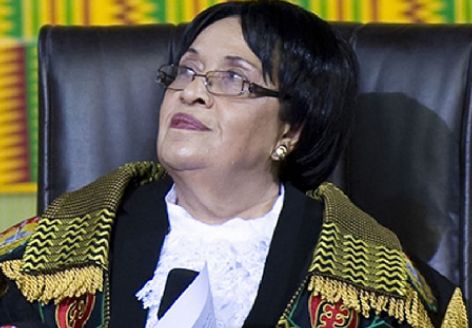Unexplained wealth to be criminalised – Special Prosecutor

As part of its anti-corruption programme this year, the Office of the Special Prosecutor is pushing the agenda for the criminalisation of unexplained wealth.
When successful, it will lead to the amendment of the Special Prosecutor’s law to place the burden of proof on public servants and private individuals to explain their excess earnings and failure to do so would lead to prosecution.
The Special Prosecutor would also be empowered to investigate bank accounts of persons suspected to have committed any of the 11 offences under the Special Prosecutor Act, 2017 (Act 959).
Under the current laws of the country, unexplained wealth is not a criminal offence and the agenda to criminalise it will, therefore, require an amendment of the Criminal Offences Act, 1960 (Act 29) and the Special Prosecutor Act, 2017 (Act 959).
To this end, the Parliamentary Select Committee on Constitutional, Legal and Parliamentary Affairs has implored all relevant bodies and institutions to give the Office of the Special Prosecutor the maximum support towards the realisation of its agenda this year.
The call was contained in the committees report after its members met the Special Prosecutor, Mr Martin Amidu, and other officials of the Office of the Special Prosecutor (OSP) on its 2020 annual budget estimates.
Failure to provide information
When he appeared before the committee, Mr Amidu also expressed concern about the challenges his office was encountering in accessing critical information to aid investigations into alleged corruption or corruption-related offences.
He complained that most of the requests made under the statutory authority of the OSP for information or production of documents from ministries, departments and agencies (MDAs) to assist in investigations were not complied with.
The committee, therefore, charged Mr Amidu to utilise all the powers at his disposal in Act 959 to subpoena information which could assist in the fulfilment of its mandate.
New office building for OSP
Mr Amidu also informed the committee that the plan to move the offices to an appropriate accommodation last year could not materialise due to structural defects on the building, which was finally secured, which needed to be remedied by the original contractor before it could be used as offices for the OSP.
Given that the 2019 budget of the OSP was prepared on the assumption that a new office facility would be made available to accommodate the 249 staff which were to be recruited in the year and the establishment of a tender entity committee to make the necessary procurements, the accommodation situation significantly hampered the implementation of planned programmes and activities of the OSP in 2019.
2019 compensation
The committee was also informed that the OSP recorded zero performance in the implementation of its 2019 compensation budget because its staff of 17 were seconded, and they continued to draw their salaries from their parent institutions.
Subject to the completion of the new office building in February 2020, the OSP has planned the recruitment of 249 staff towards the full operationalisation of the office.
Budget estimates for OSP
To help the OSP carry out its planned programmes and activities, an amount of GH¢188.08 million was allocated to it for its planned programmes for the 2020 financial year.
The amount is made up of GH¢36.23 million as compensation, GH¢92.97 million for goods and services and GH¢58.8 million for capital expenditure.
Source: Graphic.com.gh





